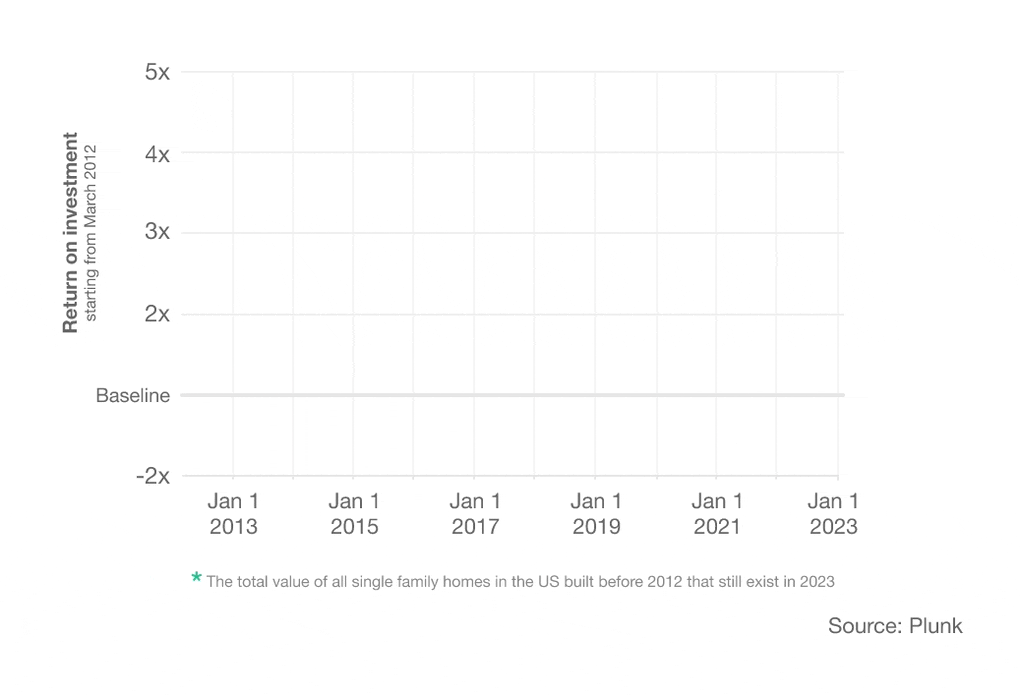What is the relationship between the single-family real estate market and equity markets? Where are they correlated and where do they diverge? Are there insights that we can glean to help guide investment decisions? Let’s examine and analyze the interrelationships between the residential real estate and equity markets.

While looking at the big picture is often a good place to start, drilling down to specific market segments gives us a better opportunity to glean clear insights and test hypotheses. Last month, we looked at the relationship between aggregate single-family real estate valuation and the major equity indexes over the past 10 years, and noted the impact of the rise in inflation and interest rates, plus speculated on some explanations of the continued strength in real estate values compared to the equity markets.
A closer look at the luxury market demand
This piece focuses specifically on the luxury real estate market to compare expected effects of recent economic trends on home demand by wealthy buyers. To do this, an index based on the valuation of properties in the 50 most expensive zip codes in the U.S. has been added to the visualization.
There are likely multiple effects at work in the luxury market, potentially pushing price levels in opposite directions. Factors that could be supporting demand in luxury markets relative to the middle and lower tiers of the market include:
Interest rates: The luxury real estate market is less affected by increases in interest rates because buyers of multi-million-dollar homes are less likely to utilize a traditional mortgage to finance their purchase — being more likely to either pay cash or leverage a margin account.
Inflation: Due to their higher wealth and income levels, buyers in luxury markets can absorb price increases without seriously affecting their consumption behavior.
Hedging behavior: As discussed last month, the continued strength in the real estate market could be due, in part, to the movement of capital into real property as a hedge against inflation. This could be particularly true for the wealthy, looking to preserve their gains over the past few years against inflation and falling equity prices.
High-end properties aren’t immune
On the other hand, there are factors that could erode demand for high-end properties:
Declining equity values: Just as the wealthy benefited disproportionately from the run-up in equity values in the past few years, they are also taking the brunt of the recent losses. The Wall Street Journal reporter Justin Lahart has coined the term “richcession” to describe how this time around, the wealthy could be more heavily impacted by a recession.
Tech layoffs: The current wave of layoffs by big technology firms are impacting employees across the income spectrum. Not surprisingly, these companies and their employees are concentrated in some of the zip codes that fall into the top 50 used in this analysis as well.
Examining the visualization above, luxury markets outpaced the overall single-family market, though following a similar pattern recently. The percentage decline in value since the peak in July 2022 is only slightly higher for the luxury zip codes than for the overall single-family market, indicating there is not a disproportionate drop in demand in the luxury market. Whether or not this continues to hold depends on where the equity markets and the economy overall proceeds.
Vince O’Neill is the Chief Economist of Plunk.
